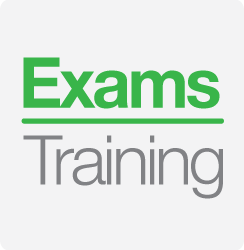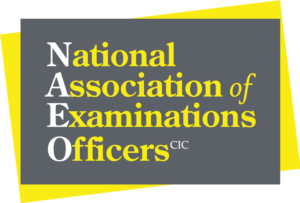Our monthly blog, written by serving exams officers and exams experts, provides excellent hints, tips and guidance for new and experienced exams officers
June 2023: Managing the special consideration process within your centre
In our latest blog, Jugjit Chima highlights how centres should manage the special consideration process. He defines special consideration, how requests/cases should be dealt with, and when and how applications should be made to the relevant awarding bodies.
Introduction
A key element of the examination system is to ensure that a ‘level playing field’ exists for all candidates. This includes a process which provides special consideration to any candidate who has temporarily experienced illness, injury or some other event outside of their control at the time of the examination or assessment. It is applied when the issue or event has had, or is reasonably likely to have had, a material effect on a candidate’s ability to take an assessment or demonstrate his or her normal level of attainment in an assessment.
The special consideration process cannot remove the difficulty faced by the candidate, but it can go some way to assist a candidate affected by a potentially wide range of difficulties, emotional or physical, which may influence performance in their examinations. However, the process does not cover all scenarios, and there may be some instances where it is more appropriate for the candidate not to be entered for the examination.
It should also be noted that senior leaders play a significant role in the special consideration application process, as it is they who are required by JCQ to provide signed evidence/statement to support each application.
The Joint Council for Qualifications (JCQ) publishes A guide to the special consideration process which should be read by heads of centre, senior leaders within schools and colleges and examination officers.
- In which circumstances would special consideration apply?
Firstly, it must be noted that candidates will only be eligible for special consideration if they have been fully prepared and have covered the whole course. Centres and candidates should also be aware that the special consideration process is only applicable if the candidate is impacted by a particular issue at the time of the assessment.
Candidates may be considered for special consideration if their performance in an examination or assessment has been materially affected by adverse circumstances beyond their control, for example, temporary illness or accident/injury, a bereavement, domestic crisis at the time of the assessment, or issues which may occur during the examination, such as a serious disturbance or an accidental event such as being given the wrong examination paper, being given a defective examination paper or CD, failure of practical equipment, failure of materials to arrive on time, etc.
For more information, refer to section 2.1 of A guide to the special consideration process.
- In which circumstances would special consideration not apply?
It is important that centres understand that special consideration can only be applied where the performance of a candidate is materially impacted by a particular issue at the time of the assessment. Therefore, it does not apply in the following circumstances:
- a bereavement which has occurred more than six months before the assessment (unless an anniversary has been reached at the time of the assessment or there are on-going implications such as an inquest or court case)
- pregnancy at the time of the assessment (unless health issues are being experienced as a result of the pregnancy at the time of the examination)
Special consideration would also not apply in the following circumstances:
- a minor disturbance in the examination room caused by another candidate, such as momentary bad behaviour or a mobile phone ringing
- a domestic inconvenience, such as moving house, lack of facilities, taking holidays
- making personal arrangements such as a wedding or holiday arrangements which conflict with the examination timetable
For more information, refer to section 2.3 of A guide to the special consideration process.
- The special consideration mark ‘allowance’
Where a candidate is present for the assessment but disadvantaged, special consideration is normally given by applying an allowance of additional marks to each component affected within a specification. The size of the allowance depends on the timing, nature and extent of the illness or misfortune. Below is an example of the mark allowance for specific circumstances:
- 5% – This is the maximum allowance and will be reserved for the most exceptional cases, such as terminal illness of the candidate or a parent/carer. It is also applied in the instance of a death of a member of the immediate family within three months of the examination.
- 4% – This allowance is applied for very serious problems such as a life-threatening illness of candidate or member of immediate family, major surgery at or near the time of the examination, or severe or permanent bodily injury or a serious crisis/incident at the time of the examination.
- 3% – This is a more common category which includes a recent traumatic experience such as death of a close friend or distant relative, recent illness of a more serious nature, a flare-up of a severe congenital/medical condition or a psychological condition, or a broken limb(s). Note that ‘recent’ is defined as up to four months prior to the examination(s) taking place.
- 2% – This is the most common category of allowance and includes illness at the time of the examination, a broken limb(s) on the mend, the effects of pregnancy (not pregnancy per se) and extreme distress on the day of an examination (not simply exam related stress).
- 1% – This is reserved for more minor problems such as noise during an examination which is more than momentary, the illness of another candidate which leads to minor disruption in the examination room or hay fever on the day of an examination.
Special consideration cannot be applied in a cumulative fashion and an application should only be made for the most serious indisposition.
Centres should also note that special consideration can also be applied for an allowance on the last paper taken in a day when a candidate has been entered for three or more examinations timetabled for the same day and the total duration of those papers is more than 5 hours 30 minutes (GCSE, Level 1 and Level 2 examinations) or more than 6 hours (GCE and Level 3 examinations). In this instance, the likely allowance of additional marks would be 2% ‘for the last paper taken that day.
For more information, refer to section 3 of A guide to the special consideration process.
- Enhanced grading in cases of acceptable absence
Where a candidate has missed (is absent from) a timetabled component/unit for an acceptable reason and the centre is prepared to support an application for special consideration, the awarding body may make an adjustment to the terminal grade. However, the component/unit must have been missed in the terminal series and the minimum requirements for enhanced grading in cases of acceptable absence must be met.
As example, for GCE AS and A-level and GCSE qualifications (AQA, OCR, Pearson and WJEC linear specifications) one whole component, which is a minimum of 15% of the total assessment, must normally have been completed.
For more information, refer to section 4 of A guide to the special consideration process.
- Applying for special consideration
Deadline
Centres are permitted to submit special consideration requests for timetabled written examinations to awarding bodies at any point after the affected examination(s). For the summer 2023 examination series, the final date for submitting special consideration requests to awarding bodies is 5 July 2023.
Information sharing
As candidate information is being shared with a third party, centres must comply with the UK General Data Protection Regulations (GDPR)/Data Protection Act 2018 and inform the candidate when an application for special consideration is submitted to the awarding body.
Processing applications
Applications for special consideration in respect of timetabled written examinations delivered by AQA, CCEA, OCR, Pearson and WJEC GCSE and GCE qualifications must be processed online. Paper forms will not be accepted. Spreadsheets must not be submitted to awarding bodies.
Online applications for special consideration are made through:
- AQA Centre Services
- CCEA SpC Online
- Edexcel Online
- OCR Interchange
- WJEC Secure Website
In most cases the online system will provide an instant decision.
Role of senior leaders within the centre
All applications must be supported by signed evidence produced by a member of the senior leadership team. The centre must retain this evidence until after the publication of results.
Late applications
There may be exceptional circumstances – such as evidence coming to light which was previously unknown/unavailable – where an application for special consideration has to be submitted after the 5 July deadline.
Such applications will only be accepted in the most exceptional circumstances and must be submitted before the deadline for reviews of results for the respective examination series. Late applications must also be supported by compelling evidence produced by a member of the senior leadership team.
An application for special consideration cannot be submitted after the completion of a review of results. For more information, refer to section 6 of A guide to the special consideration process.
Conclusion
Key centre staff – the head of centre, the relevant senior leader(s) and the exams officer – must be aware of the regulations associated with the special consideration process. They must be aware of when special consideration may, or may not, apply, and be fully informed of the indicative mark allowance (in cases where a candidate is present for the assessment but disadvantaged) and the minimum requirement for enhanced grading (in cases where a candidate is absent for an acceptable reason) so they can make the correct decisions and provide candidates – and their parents/carers – with the most relevant and accurate advice, guidance and information.
It is also important that staff are aware of other issues – such as other certification (including the issue of a statement of recognition, honorary certificate or posthumous award) – and the exceptional circumstances when it may be more appropriate to consider other certification to ensure that the candidate is not disadvantaged. For more information, refer to section 5 of A guide to the special consideration process.
The contents of this article were correct at the time of writing (May 2023)

2022/23 Exams Blog archive
- September: KEY JCQ REGULATION CHANGES 2022/2023 (written by Jugjit Chima)
- October: THE ROLE AND RESPONSIBILITIES OF AN EXAMS OFFICER IN THE MANAGEMENT AND ADMINISTRATION OF ACCESS ARRANGEMENTS (written by Jugjit Chima)
- November: UTILISING MOCK EXAMS TO IMPROVE THE STANDARD OF INVIGILATION WITHIN YOUR CENTRE (written by Lisa Longstaff)
- December: PLANNING FOR SUCCESS (written by Alexis Wragg)
- January: JANUARY JUMPSTART – THE COUNTDOWN TO THE SUMMER EXAM SERIES HAS BEGUN (written by Katherine McDiarmid)
- February: MANAGING EXAM ENTRIES, LATE ENTRIES, AMENDMENTS, WITHDRAWALS AND ACCESS ARRANGEMENTS APPLICATIONS (written by Lisa Longstaff)
- March: KEY TASKS TO UNDERTAKE AHEAD OF THE SUMMER EXAMS SERIES (written by Alexis Wragg)
- April: THE IMPORTANCE OF A WELL PLANNED, COMPREHENSIVE PRE-EXAMS CANDIDATE BRIEFING (written by Lisa Longstaff)
- May: PLANNING FOR AND DEALING THE UNEXPECTED DURING THE EXAM SERIES (written by Jugjit Chima)
- June: MANAGING THE SPECIAL CONSIDERATION PROCESS WITHIN YOUR CENTRE (written by Jugjit Chima)
All views and opinions expressed in Blogs are the authors own
The Exams Office takes no responsibility for any outcomes in centres as a result of the information provided on our website or within our documentation. It is the responsibility of centres to apply this information as they deem necessary within their own centre. You should always contact/refer to the relevant awarding body for the most accurate and up-to-date information regarding their qualifications.




